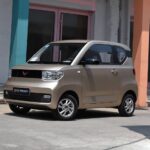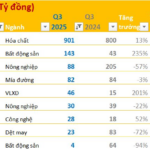V-GREEN Aims to Transform Supermarkets, Cafes, Restaurants, and Hotels into Charging Stations
The electric vehicle charging station market in Vietnam has yet to see many “heavyweight” development units. The most well-known is still the Global Charging Station Development Joint Stock Company V-GREEN, a private company of billionaire Pham Nhat Vuong, Chairman of Vingroup’s Board of Directors.
Currently, V-GREEN owns the largest network of charging stations for electric cars and motorcycles in Vietnam, with a plan to deploy 150,000 charging ports in all 63 provinces nationwide. With a commitment to invest VND 10,000 billion in the next two years to build, upgrade, and complete the system, V-GREEN is actively pushing to expand the coverage of VinFast electric vehicle charging stations nationwide.
Moreover, the enterprise has just announced the implementation of the V-GREEN franchised charging station model in Vietnam on September 4. The V-GREEN franchised charging station is deployed following the model of “business and people together,” promising to open up a new business for all landowners nationwide.
Similar to the genuine charging stations invested by V-GREEN, the V-GREEN franchised charging stations will serve VinFast electric car and motorcycle owners nationwide. V-GREEN commits to accompanying and sharing a fixed revenue of VND 750 per 1 kWh of electricity charged with partners for a minimum of 10 years. V-GREEN also commits to compensating the charging station owners if the company stops operating before the 10-year commitment.
Especially, parking lots, gas stations, supermarkets, cafes, restaurants, and hotels will also have the opportunity to expand their customer base by investing in the V-GREEN franchised charging business. This entirely new business model is also in line with the orientation of green economic development and the strong trend of shifting to the use of electric vehicles in Vietnam.
“Giant” in the electricity industry aspires to own 1,000 charging stations by 2035
In the meantime, Vietnam Oil and Gas Power Joint Stock Company (PV Power, code: POW) is also preparing to pilot the first electric vehicle charging station at No. 6 Huynh Thuc Khang, Hanoi. The charging station is expected to be operational from September 2024. The station will include two cabinet-type chargers, equipped with two charging ports with a capacity of 50-60 kW/port, a total project investment of over VND 1.8 billion, a total capacity of 100-120 kW, and an area of about 30-35 m2.

After the charging station at No. 6 Huynh Thuc Khang is put into operation, PV Power will continue to pilot two more charging stations at 222 Tran Duy Hung, Cau Giay, Hanoi (Big C Thang Long).
” The project to develop PV Power’s electric vehicle charging system does not just stop at building charging stations but also aims to develop a synchronized charging network nationwide,” the company said.
According to PV Power’s plan, after two years of piloting, the company will evaluate the project’s effectiveness and then develop it synchronously nationwide. It is expected that by 2035, they will develop an additional 1,000 charging stations.
It is known that PV Power is a member of the Vietnam National Oil and Gas Group (PVN), with the group investing 79.94% of its capital as of Q2 2024. The enterprise mainly operates in power generation and electricity production. If we do not count the units directly under the Vietnam Electricity Group (EVN), PV Power is the largest power generation company outside of EVN and the electricity company with the most considerable market capitalization on the stock exchange (approximately US$1.2 billion as of September 9).
The electric vehicle charging station market – a “fertile ground” for businesses
In reality, the trend of turning cafes, supermarket chains, and hotels into charging stations is quite familiar worldwide. Typically, in the United States, according to Carscoops, Mercedes-Benz announced that it would install DC fast chargers at more than 100 Starbucks stores across the country. It is known that Starbucks had previously collaborated with Volvo and installed a total of 50 chargers at 15 different stores along a route of more than 2,170 km between Denver and Seattle.
It is undeniable that Vietnam is on the cusp of a significant opportunity to develop the electric vehicle market, which also opens up prospects for the expansion of the electric vehicle charging infrastructure.
In July 2022, the Prime Minister issued Decision 876/QD-TTg on the roadmap for transitioning to electric vehicles, with critical milestones: 100% of buses will use electricity by 2025, 100% of taxis by 2030, and 100% of motor vehicles by 2050.
According to a report by the Vietnam Petroleum Institute (VPI) on the domestic electric car market index, with a market of about 100 million people, Vietnam’s current car ownership rate is only at 23 cars/1,000 people, equal to only 1/10 of Thailand and 1/20 of Malaysia. It is forecasted that by 2025, the country’s car demand will be about 800,000 – 900,000 vehicles, and by 2030, it will reach about 1.5 – 1.8 million vehicles.
Meanwhile, the Vietnam Automobile Manufacturers Association (VAMA) predicts that by 2028, Vietnam will reach the milestone of 1 million electric vehicles and about 3.5 million electric vehicles by 2040.
Despite being considered fertile ground for businesses to “jump into,” investing in developing electric vehicle charging stations still entails risks and challenges. Developing charging stations requires a substantial investment in infrastructure and technology. Initial investment costs can be very high, and capital recovery may be prolonged if revenue falls short of expectations.
To develop a comprehensive and synchronized electric vehicle system, a versatile charging network capable of supporting multiple vehicle brands and models is necessary. Therefore, developing a charging system that can accommodate all types of electric vehicles with different charging standards is also a challenge.
In conclusion, Vietnam’s electric vehicle charging station market remains largely untapped and presents a wealth of opportunities for development in the coming years. This race is not just about the number of charging stations but also about innovation and service quality, promising a sustainable and environmentally friendly future.
“The $224.8 Billion Gem”: State-Owned Power Giant Bets Big on Growth with a Near 30% Annual Increase.
This business asserts that this is the first step towards achieving their long-term goals of expanding their numbers, locations, and capacities nationwide.
The Wuling Hongguang Mini EV: Why is Vietnam’s Cheapest Car Struggling to Sell?
The Wuling Hongguang Mini EV is a testament to affordable mobility, positioning itself as one of the most cost-effective cars in the Vietnamese market. With its jaw-dropping price tag, the base model retails for under 200 million VND after discounts, making it an irresistible choice for budget-conscious consumers.





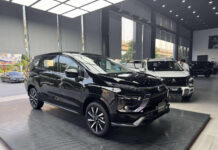



















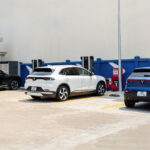
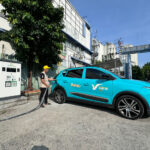
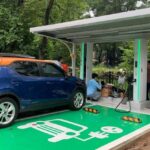
![[On the Front Seat] Chinese Automakers Unite to Take on the Rest of the Vietnamese Market: A ‘Dream Scenario’](https://xe.today/wp-content/uploads/2024/08/quote-temp-150x150.jpg)
